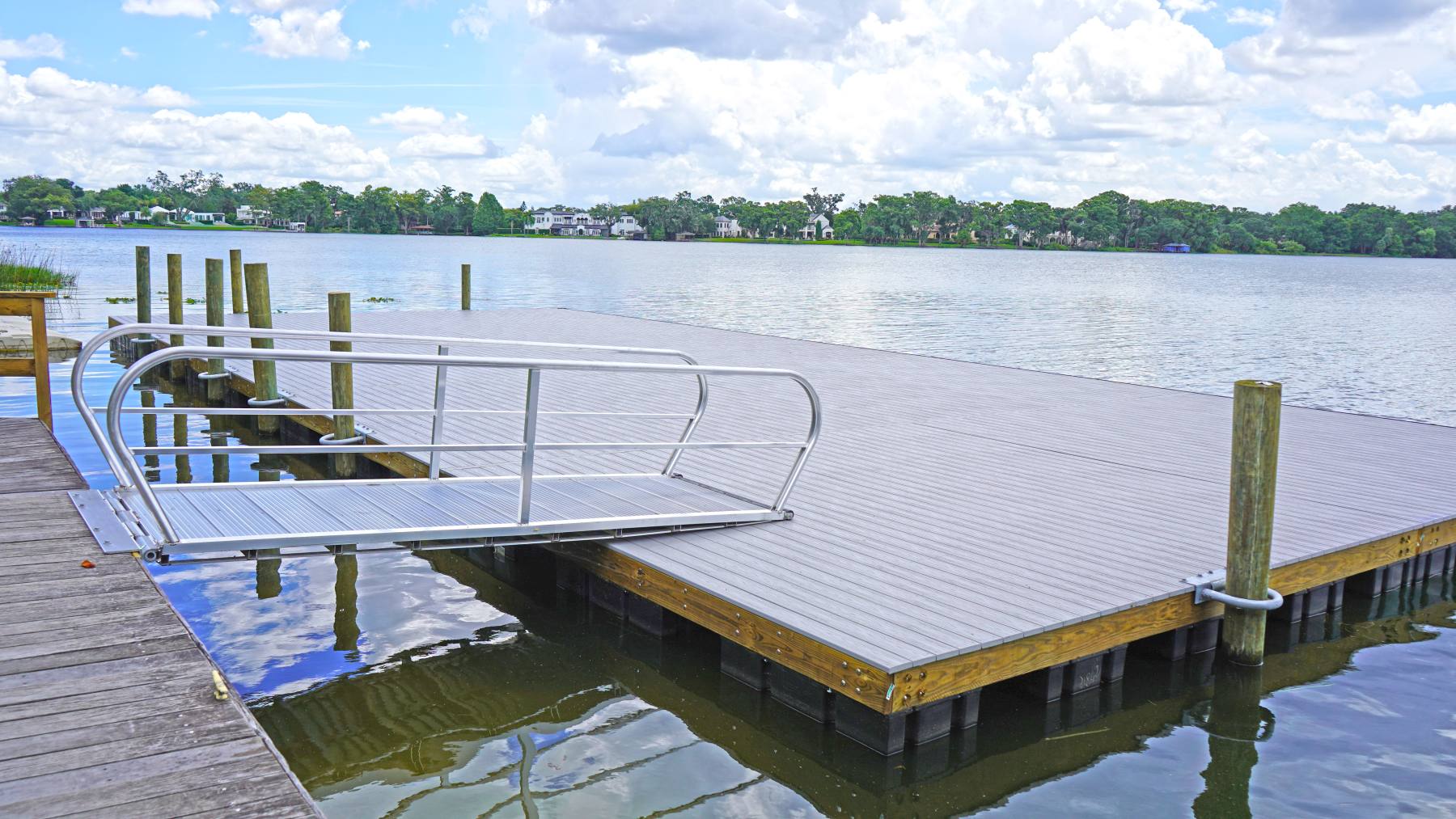When it comes to choosing the right boat dock for your waterfront property, you’ll likely consider various options. Floating boat docks are gaining popularity due to their unique advantages, but they also come with their own set of considerations. In this comprehensive guide, we’ll explore the pros and cons of floating boat docks, helping you make an informed decision for your watercraft and waterfront needs.

The Pros of Floating Boat Docks:
- Versatility of Floating Docks: Floating boat docks are incredibly versatile, adapting to fluctuating water levels. Whether the water is high or low, your boat dock remains accessible and functional.
- Watercraft Accessibility with Floating Docks: Floating docks provide easy access to watercraft. They adjust to the boat’s movement, simplifying the boarding and disembarking process.
- Dock Stability in Changing Water Levels: Floating docks offer remarkable stability even when water levels change drastically. This ensures that your boat dock remains safe and secure in varying conditions.
- Maintenance of Floating Boat Docks: Floating docks are relatively low-maintenance. They don’t require as much maintenance as traditional fixed docks, which often need more frequent repairs due to exposure to water and weather.
- Floating Dock Durability: Well-constructed floating docks are known for their durability. They can withstand the elements and have a long lifespan, making them a solid investment.
- Environmental Impact of Floating Docks: Floating docks are environmentally friendly because they have minimal impact on the water and its ecosystem. They can be designed to accommodate marine life and protect underwater habitats.
- Cost of Floating Dock Installation: While the initial cost of installation may be higher than fixed docks, the long-term savings in maintenance and repairs can make floating docks a cost-effective choice.
- Floating Dock Design Options: Floating docks come in a variety of design options, allowing you to choose a style that suits your waterfront property and personal preferences.
- Floating Dock Permitting and Regulations: Floating docks may be subject to different permitting and regulatory requirements, which can be less restrictive than those for fixed docks in some areas.
The Cons of Floating Boat Docks:
- Comparing Floating and Piling Docks: When comparing floating docks with piling docks, it’s important to consider the specific needs and conditions of your waterfront property. Piling docks may be more suitable in certain situations.
- Floating Dock Advantages: While floating docks offer numerous advantages, it’s essential to weigh these benefits against the potential drawbacks.
- Floating Dock Disadvantages: Floating docks may not be the best choice for all waterfront properties, depending on factors like water depth, boat size, and location.
Floating Boat Dock Considerations:
Before making a decision, it’s crucial to consider your specific needs, budget, and the environmental conditions of your waterfront property. Floating boat docks offer exceptional advantages, but they may not be the ideal choice for every situation. By understanding the pros and cons, you can make an informed decision that aligns with your goals and preferences. Ultimately, the choice of a floating boat dock should be based on what best serves your waterfront lifestyle.

